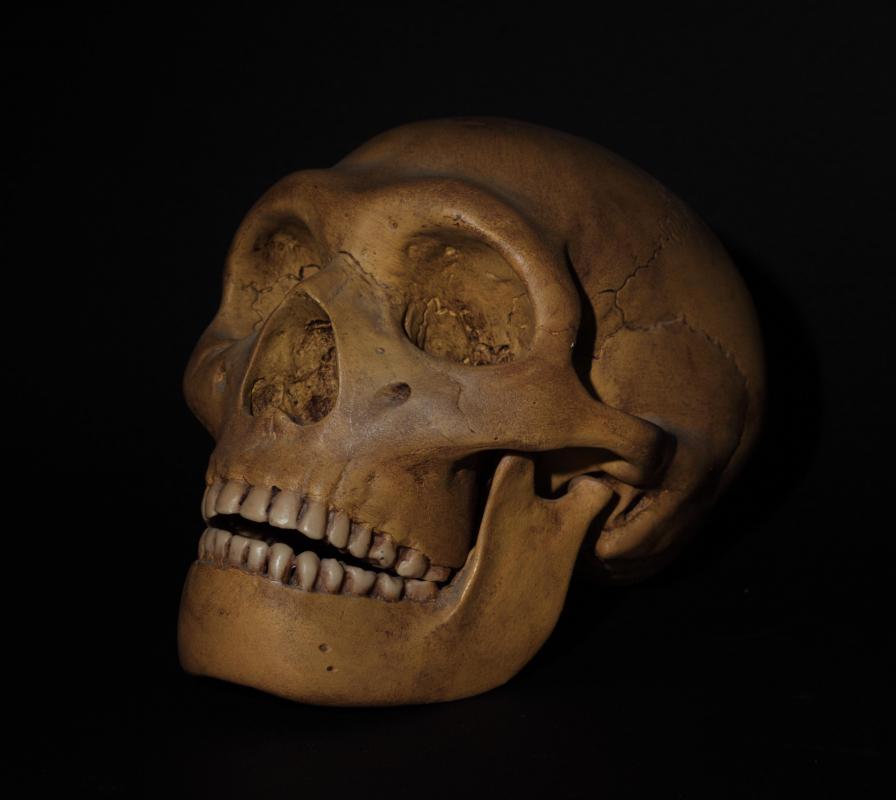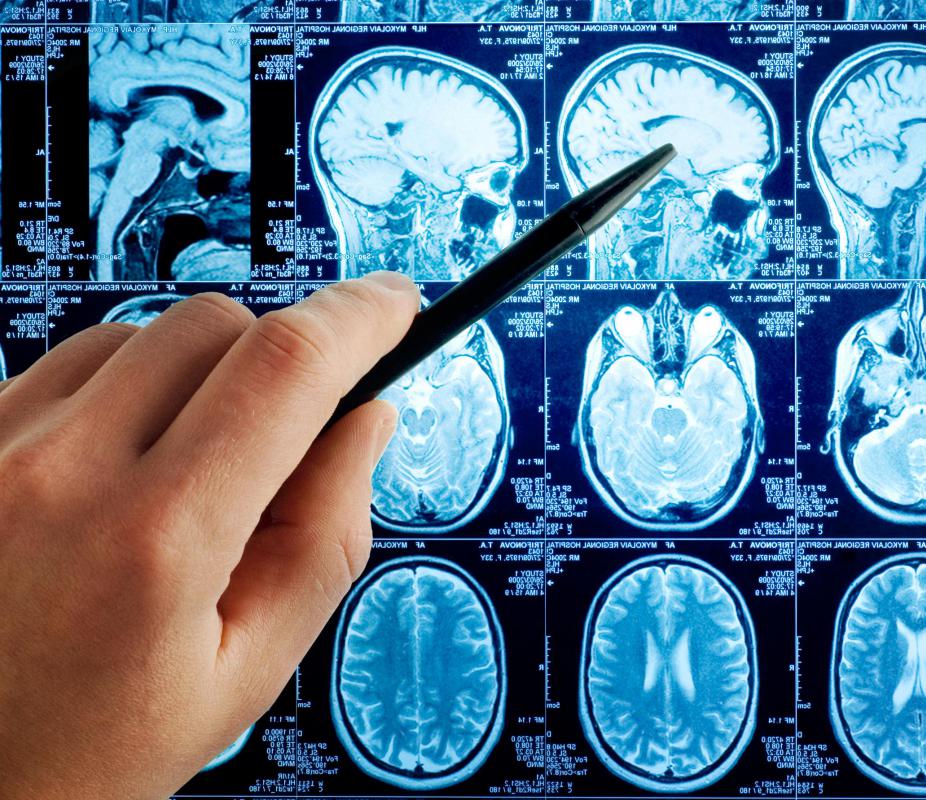At TheHealthBoard, we're committed to delivering accurate, trustworthy information. Our expert-authored content is rigorously fact-checked and sourced from credible authorities. Discover how we uphold the highest standards in providing you with reliable knowledge.
What is the Prefrontal Cortex?
The prefrontal cortex (PFC) is located in the very front of the brain, just behind the forehead. In charge of abstract thinking and thought analysis, it is also responsible for regulating behavior. This includes mediating conflicting thoughts, making choices between right and wrong, and predicting the probable outcomes of actions or events. This brain area also governs social control, such as suppressing emotional or sexual urges. Since the prefrontal cortex is the brain center responsible for taking in data through the body's senses and deciding on actions, it is most strongly implicated in human qualities like consciousness, general intelligence, and personality.
PFC Function

This vital region of the brain regulates thought in terms of both short-term and long-term decision making. It allows humans to plan ahead and create strategies, and also to adjust actions or reactions in changing situations. Additionally, the PFC helps to focus thoughts, which enables people to pay attention, learn, and concentrate on goals. This area is also the part of the brain that allows humans to consider several different yet related lines of thinking when learning or evaluating complex concepts or tasks. The prefrontal cortex also houses active, working memory.

Since the PFC controls intense emotions and impulses, it is sometimes referred to as the seat of good judgment. As such, a properly functioning prefrontal cortex inhibits inappropriate behaviors — including delaying gratification of needs, for things like food or sex — while encouraging wise, acceptable choices. In part, this occurs because it works to allow humans to balance immediate reward with long-term goals.
Brain Development

The prefrontal cortex has remarkably expanded in size throughout human evolution, culminating in modern Homo sapiens. This suggests a strong selection pressure in favor of its continued growth and development. The size of the PFC relative to the rest of the brain has also increased over that time; while the brain itself has only increased in size about threefold in the past five million years, the size of the PFC has increased sixfold.

Medical studies have shown that the PFC is the last section of the brain to mature. In other words, while all other brain regions are fully developed early in life, its development is not complete until around age 25. Magnetic resonance imaging (MRI) research has revealed that the prefrontal cortex changes a great deal during adolescence, as the brain's myelin matures and connects all regions of the brain together. This late growth and development is likely the reason that some otherwise intelligent and sensible teens engage in high-risk or excessive behaviors even though they understand the potential dangers.
Damage to the PFC

Unfortunately, the PFC is one of the brain regions most susceptible to injury. When the pathways between the prefrontal cortex and the rest of the brain are damaged or altered, serious personality changes can result. This is logical, since the PFC regulates so many behavior and thought-processing pathways, but can be debilitating and difficult for the injured individual as well as his family and social circle. A person who had been reserved and contemplative can become reckless and impulsive after such an injury. Likewise, a formerly outgoing person can become quiet and withdrawn.
A damaged PFC can negatively impact a person's ability to assess situations or perform tasks, particularly those of a moral or ethical nature. Since social judgements are made in this brain area, these people can also be rendered unable to discern appropriate behavior or suffer from emotional distress, such as irrational fears, anxiety, euphoria, and irritability. Some studies have found weak interconnections between the PFC and the rest of the brain among criminals, sociopaths, drug addicts, and schizophrenics, which may be further evidence of the importance of this part of the brain in individual behavior and decision-making.
AS FEATURED ON:
AS FEATURED ON:















Discussion Comments
In my experience, I was imprudent at about 20 age, but now I think I was more mature and cogitative than before (now I am 24 years old). As mentioned in article, I think more comprehensive about the outcome and other conditions.
My child is 2 years old and displays all of the symptoms of ADHD. It has gotten so out of control that I have been advised to contact a mental health clinic for diagnosis and treatment.
I have been researching the prefrontal cortex for weeks now and I have come to the conclusion that it could be the cause of this behavior as well as others. I don't believe that it is due to an injury, but injuries to this part of the brain would present problems with its function. It has been shown that the smaller the prefrontal cortex is, the less it works and the more aggressive or depressed the person becomes.
These symptoms are related to so many mental disorders. Is it possible that there is a way to stimulate the growth and function of the PFC? If so, we may be able to reduce or eliminate the number of bipolar, schizophrenics and criminal people. This should be the real topic.
It seems as if some teens have given themselves a frontal lobotomy. What can parents do about this?
This feels extremely relative to the Yogi's third eye. Tons of the Yoga philosophy show up in this article.
Excellent article. I'm experiencing depression due to defensiveness in my prefrontal cortex. In order to relieve the depression, you must find an environment outside of the areas that are making you depressed.
There's all of this talk about the development and such, but is there a certain percentage of teenagers whose PFC is fully/more developed than normal? I have a 16 year old daughter, and a 20 year old daughter, and the 16 year old tends to think of her future more, and thinks a lot more rationally than my other daughter.
It is well documented that Phineas Gage did not experience radical personality changes as is popular belief.
if a 17 year old goes through the windshield of a car, and over 40 years later is still expelling pieces of glass through the forehead, and this person is prone to sudden anger outbursts, do you think it's connected?
If a child already had bad behavior, is it possible that an injury like this could fix the child's behavior? I got hit in the head by a baseball bat when I was a teenager.)
Teens PFC do not mature until around 25 years of age. Should be a main talking point.
Symptoms of injury to the PFC sound very similar to symptoms of Attention Deficit Disorder.
Can early head trauma result in only a few of the mentioned symptoms:e.g. sudden anger and indecision, but *not* lack of conscience or long-term planning? Cherry picking, in other words.
Anon20226 -- According to Children's Hospital Boston, personality is located in the PFC. Google "Children's Hospital Boston frontal lobe personality" and you'll find their page on the anatomy of the brain.
There is no such thing as personality nest in the PFC.
changing the position of head and body of human, does it have to do with change of blood supply to prefrontal cortex? if yes, how? if no, why?
Post your comments